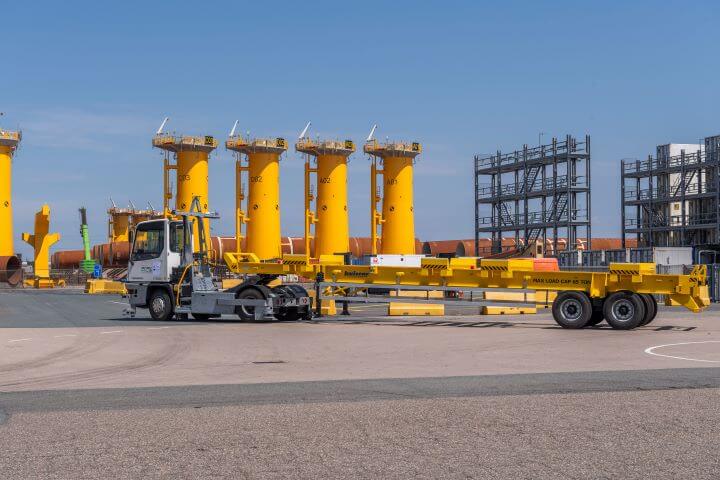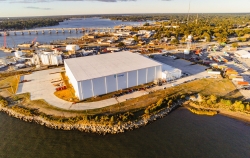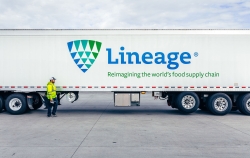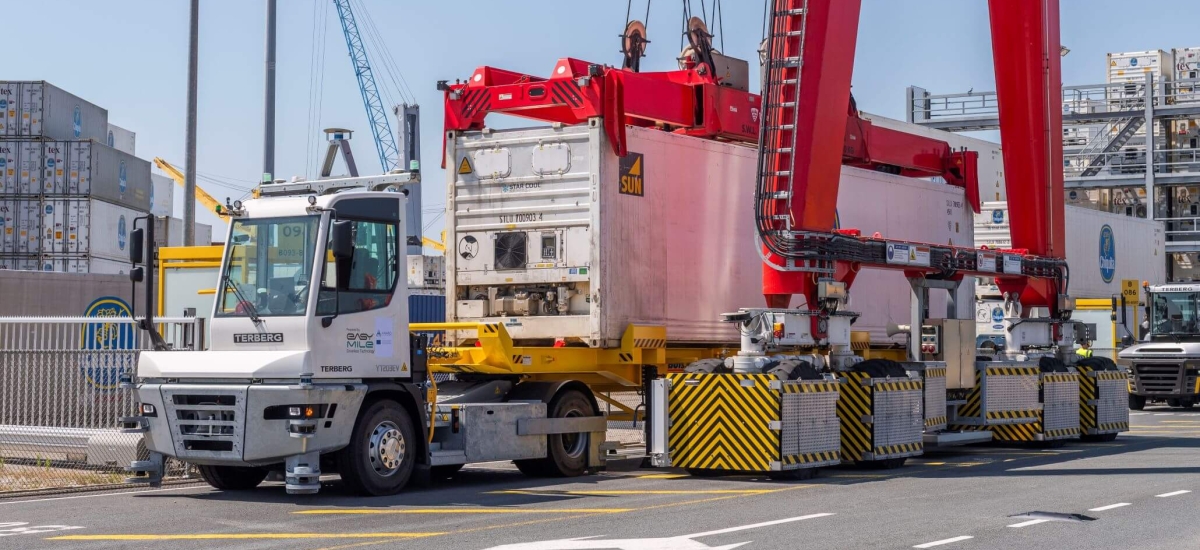Successful Driverless Container Transport from Yard to Quay in Zeeland
April 04, 2024
Project Living Lab Autonomous Transport Zeeland (the “ATZ”) was developed as an open innovation system in which logistics companies, technology providers for autonomous vehicles, road authorities and knowledge institutions jointly innovated and experimented with autonomous vehicles with mixed traffic in real-life logistics operations and on public roads.
The ATZ project aimed to achieve autonomous (driverless) transportation from the yard to the quay at Lineage’s site in Vlissingen, integrating seamlessly into Lineage's operational processes. With one of Lineage’s core values being innovation, there was no surprise that Lineage showed interest in contributing to the pilot. Lineage supported by providing an opportunity for the developers, Terberg and EasyMile, to put the autonomous trucks into pilot-use at one of Lineage’s terminals.
In 2022, Proof of Concept 1 (PoC1) of the European Union, the Netherlands and Zeeland Regional subsidized project, Living Lab Autonomous Transport Zeeland (ATZ), was successfully completed with a demonstration for all stakeholders involved. However, improvements identified during PoC1 necessitate the initiation of Proof of Concept 2 (PoC2). This phase was delivered in December 2023.
PoC2 is a collaborative project involving the developers of the truck; manufacturer Terberg Benschop, technology provider EasyMile and Lineage as the site operator, with the overarching goal of trying to further refine the autonomous terminal truck (ATT) and its systems in which an autonomous truck can drive safely in a mixed traffic container terminal. The primary focus of PoC2 is to provide EasyMile and Terberg with valuable experience and feedback to enhance their hardware and systems, ultimately for preparation of the ATT for market.
Lineage’s ambition has always been to think further in the supply chain. To consider how innovation and automating decision-making processes can enhance efficiency, build resilience to supply chain disruptions and navigate volatile labour markets in order to potentially help design, build and execute the food system customers and consumers deserve.
 The impact of intentional automation goes beyond a single facility and its employees. Lineage’s automated warehousing solutions have combined next-generation technology, applied sciences and innovative thinking to deliver greater efficiency and modern supply chain solutions. Tailoring the automation solution to individual customers and their specific needs has led to better outcomes–improving quality and food safety and helping to meet customer requirements.
The impact of intentional automation goes beyond a single facility and its employees. Lineage’s automated warehousing solutions have combined next-generation technology, applied sciences and innovative thinking to deliver greater efficiency and modern supply chain solutions. Tailoring the automation solution to individual customers and their specific needs has led to better outcomes–improving quality and food safety and helping to meet customer requirements.
“We were therefore very keen to join this fantastic opportunity and on-going pilot,” said Mark Ketelaar, RVP The Netherlands, “The collaboration between Terberg, Lineage and EasyMile is crucial for the project's potential success, highlighting the importance of coordination and synergy among all stakeholders.”
The key objective of PoC2 is to drive with a loaded container on the ATT chassis to any (predefined) Rubber Tyred Gantry crane Transfer Points (RTG) for container handling.
On the results: not all previously defined functional goals for PoC2 were fully achieved. However, notable achievements in PoC2 include:
- Transportation of loaded containers
- Availability and accessibility of all predefined RTG transfer points
- Less manual handlings for safety driver
There was an improvement in the speed and system stability of the vehicle. Development of new potential features have already started and the next step will be to continue testing with reverse driving, from safety driver to remote operation to not having any person in the cabin and improving performance during adverse weather conditions, like rain and fog.
In summary, Proof of Concept 2 represented a significant step forward in the development of autonomous transportation solutions, aiming to enhance efficiency, safety and productivity in container terminal operations. Through collaborative efforts and iterative testing and refinement, PoC2 aims to bring the project closer to its ultimate goal of autonomous transport deployment.


